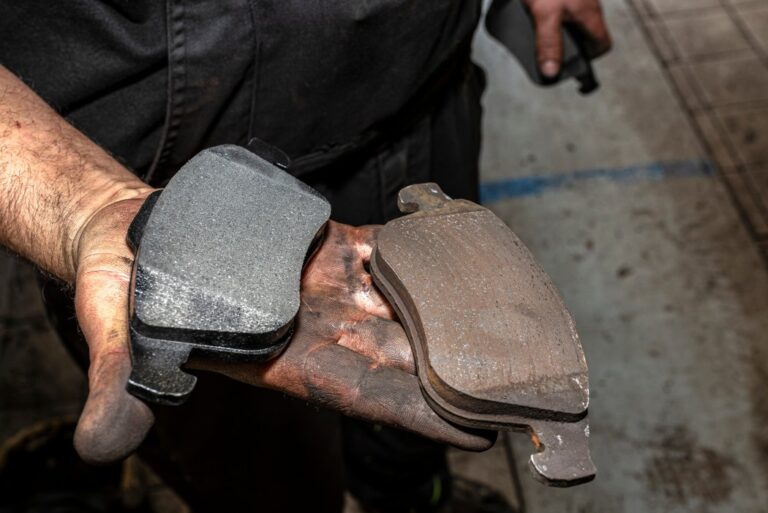There comes a time in every car’s life when the brakes need to be serviced. For some, that time might come more often than others, but it’s important to know when you can do the job yourself and when you should call in a professional. Below, we’ll discuss the basics of how brake systems work and what you can do to maintain them on your own. We’ll also talk about when it’s time to call in the professionals to perform more complex brake repairs or for a complete overhaul. Keep reading to learn more!
How Brakes Work
In order to understand when you can do a brake repair yourself and when you should call in a pro, it’s important to first understand how brakes work. Standard brake systems in cars use hydraulic pressure to stop the car. When you step on the brake pedal, that pressure is transmitted through the brake lines to the brakes themselves. The pressure then forces the brake pads against the rotors, slowing down the wheels and eventually bringing the car to a stop. Now that you know of the basics how brakes work, let’s talk about which repairs you can do yourself and which ones you should leave to the professionals.
Changing Brake Pads
One of the most common brake repairs that can be done by the average car owner is changing the brake pads. This job usually just involves removing a few screws or bolts to get to the brake pad, then swapping it out for a new one. You can find instructions on how to do this online or in your car’s manual.
Changing Brake Fluid
Another common brake repair that can be done by the average car owner is changing the brake fluid. This job usually just involves unscrewing the brake fluid reservoir, then either topping up the fluid or sucking out the old brake fluid with a baster and refilling with new, clean fluid. You won’t be able to do a complete fluid flush yourself so pour the new fluid into the reservoir and drive your vehicle for a week to mix the old and new fluid together. Repeat this procedure for several weeks until all of the fluid in the reservoir is a light honey color.
Replacing Rotors
Replacing the rotors is a more complicated procedure so you may want to rely on a professional to do this job. This job usually involves taking more of the brake system apart and can be expensive if anything goes wrong.
Bleeding the Brakes
One common brake repair that should be left to the professionals is bleeding the brakes. This job usually involves removing the brake lines and using a pump to push new brake fluid through the system. It can be difficult and time-consuming, so it’s best to leave this job to someone who has experience with it.
Replacing the Master Cylinder
Replacing the master cylinder is a more complicated job. When the master cylinder is defective, a single brake light may come on and off, a spongy pedal may be felt, or the pedal may sink to the floor when pushed. A worn seal could be another problem, allowing pollutants to enter the system. It is best to leave this diagnosis and repair up to your trusted mechanic.
As you can see, there are some brake repairs that you can do yourself and others that should be left to the professionals. By understanding how your brake system works and knowing which jobs you can handle, you can keep your car’s brakes in good condition for years to come.
If you are experiencing problems with your brakes and you’re not immediately sure how to fix them, it’s best to take your car to a professional mechanic who can diagnose the problem and perform the necessary repairs. Trying to do complex brake repairs yourself can often lead to more problems and could end up costing you even more money in the long run. So, when it comes to your brakes, it’s always best to be safe than sorry.

